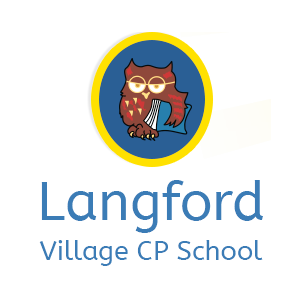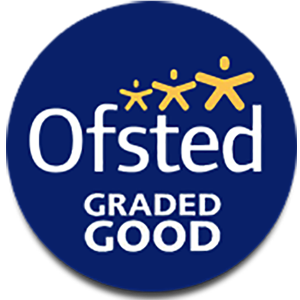




Intent
Our English Curriculum ensures children communicate their ideas through: speaking and listening and writing and become confident in the principles of spelling. Children will develop a love for reading and, through imaginative and purposeful links, will become passionate about their English skills, showing creativity and flair.
Writing
Writing is a crucial part of our curriculum at Langford Village Community Primary School. By the end of Year Six we intend our children to have developed a love of writing and to be able to express their thoughts and ideas clearly and creatively through the written word. We also intend to create writers who can re-read, edit and improve their own writing, and enable pupils to be able to confidently use the essential skills of grammar, punctuation and spelling. At Langford, we set high expectations for all our children to take pride in their work and have a fluent, cursive handwriting style alongside allowing their imaginations to flourish.
Reading
Reading lies at the heart of the curriculum at Langford. We are dedicated to enabling our pupils to become lifelong readers and we believe reading is key for academic success.
Spoken Language
Our intention is for our children to express their opinions, articulate feelings and listen to and respond appropriately in a range of situations. We aim for all pupils to participate with different groups of children to present ideas with confidence, valuing the views of others and to be able to speak audibly and confidently before an audience when performing school plays and class assemblies.
Implementation
At Langford Village Community Primary School our English curriculum will provide our children with a wealth of opportunities to develop spoken language, writing and reading which will assist their development of English skills. English is taught daily in EYFS, Key Stages 1 and 2, in both discrete lessons and through a cross curricular approach that develops and embeds skills through other subject areas. Daily Phonics sessions are taught in EYFS and KS1. We ensure consistency in our approach to teaching early reading and spelling through the adoption of the Supersonic Phonics Programme. Our curriculum provides many purposeful opportunities for reading, writing and discussion. In order to help us to develop confident, enthusiastic writers who can express themselves in a variety of different styles and across a range of contexts, our teaching of writing is often cross curricular and linked to our class topics, and we use a wide variety of quality texts and resources such as video clips, pictures and drama to inspire a wealth of ideas. The teaching of writing is purposeful, illustrating how their writing skills can be applied to real life contexts, is robust and shows clear progression for all children to enable them to communicate in a clear, imaginative and descriptive way as they progress through the school. In line with the national curriculum, we ensure that each year group are taught the explicit grammar, punctuation and spelling objectives required for that age group to enable effective progression of their skills, understanding and knowledge.
We ensure that our pupils:
To develop a ‘reading for pleasure’ ethos across the school and to encourage our reluctant readers to develop their reading fluency and comprehension, reading challenges are provided to motivate individuals and reward reading at home. This also helps to develop effective links between the school and parents as extensive reading both at home and at school has proven to aid the development of a pupil across the curriculum. Accelerated Reader has been introduced into KS2 where pupils are assessed within the reading programme and an intensive diagnostic report is provided to teachers. This then identifies books at the correct level for each pupil to provide optimal reading challenges without frustration. After reading each book, a short quiz is provided for the pupil to answer, which develops and assesses their comprehension continuously. Guided Reading sessions encourage pupils to explore unfamiliar vocabulary and expand their knowledge of words. Staff model correct grammar in speech and encourage children to reflect this in their use of spoken and written language. Children are given the chance to orally rehearse ideas for writing regularly.
Impact
The skills learnt in English lessons will equip our children to be confident, effective learners in all aspects of the curriculum. We hope that as children move on from Langford Village Community Primary School to further their education and learning, that their creativity, passion for English and high aspirations travel with them and continue to grow and develop as they do.
Writing
Pupils will make good progress from their own personal starting points. By the end of Year Six, they will be able to write clearly and accurately and adapt their language and style in and for a range of contexts, purposes and audiences. Our pupils will acquire a wide vocabulary and have a strong command of the use of Standard English. Most importantly, they will develop a love of writing and be well equipped for the rest of their education.
Reading
By the time children leave Langford, they will be competent readers who can recommend books to their peers, have a thirst for reading a range of genres including poetry, and participate in discussions about books, including evaluating an author’s use of language and the impact this can have on the reader. They can also read books with fluency to enhance their knowledge and understanding of all subjects on the curriculum, and communicate their research to a wider audience.
Spoken Language
In a safe and encouraging environment, children develop into confident communicators who illuminate the goodness in each other by listening, speaking with kindness and empathy and explaining with clarity and confidence. Children recognise that speaking and listening can lie at the heart of conveying character, and that through speaking and listening effectively, misunderstandings can be addressed and relationships enhanced.
Impact will be measured by:
Langford Village Community Primary School
Peregrine Way
Bicester
Oxon
OX26 6SX
Tel: 01869 369021
Email: office.2608@langford-village.oxon.sch.uk
Headteacher: Mrs Sarah Tomlin
SENCo: Mrs Laura Oliver
Paper copies or all information available on this website can be obtained from the school office free of charge